Related Research Articles
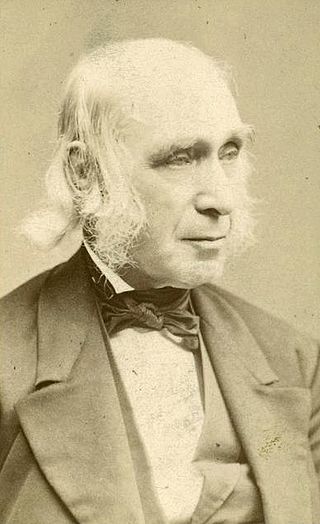
Amos Bronson Alcott was an American teacher, writer, philosopher, and reformer. As an educator, Alcott pioneered new ways of interacting with young students, focusing on a conversational style, and avoided traditional punishment. He hoped to perfect the human spirit and, to that end, advocated a plant-based diet. He was also an abolitionist and an advocate for women's rights.

Andover Theological Seminary (1807–1965) was a Congregationalist seminary founded in 1807 and originally located in Andover, Massachusetts on the campus of Phillips Academy.

Moses B. Stuart was an American biblical scholar.

Horatio Balch Hackett, American biblical scholar, was born in Salisbury, Massachusetts. His father, Richard Hackett, was a ship-builder who died when Horatio was only five years old. Hence, Horatio and his brothers were raised mostly by their mother, Martha née Balch.

James Hadley was an American philologist who taught Greek and Hebrew languages at Yale College.
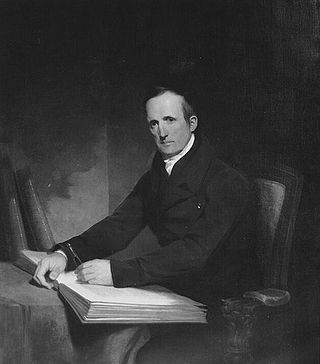
Jeremiah Day was an American academic, a Congregational minister and President of Yale College (1817–1846).

Edward Robinson was an American biblical scholar known for his magnum opus, Biblical Researches in Palestine, the first major work in Biblical Geography and Biblical Archaeology, which earned him the epithets "Father of Biblical Geography" and "Founder of Modern Palestinology."

William Buell Sprague was an American Congregational and Presbyterian clergyman and compiler of Annals of the American Pulpit, a comprehensive biographical dictionary of the leading American Protestant Christian ministers who died before 1850.

John Adams was an American educator noted for organizing several hundred Sunday schools. He was the 4th Principal of Phillips Academy. His life was celebrated by Dr. Oliver Wendell Holmes Sr. in his poem, "The School Boy", which was read at the centennial celebration of Phillips Academy in 1878, thus recalls him:
Uneasy lie the heads of all that rule — His most of all whose kingdom is a school.
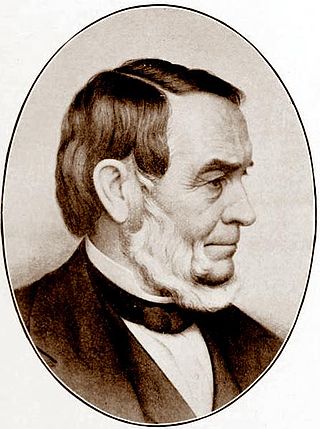
Samuel Joseph May was an American reformer during the nineteenth century who championed education, women's rights, and abolition of slavery. May argued on behalf of all working people that the rights of humanity were more important than the rights of property, and advocated for minimum wages and legal limitations on the amassing of wealth.
Andover Newton Theological School (ANTS) was a graduate school and seminary in Newton, Massachusetts, affiliated with the American Baptist Churches USA and the United Church of Christ. It was the product of a merger between Andover Theological Seminary and Newton Theological Institution. In recent years, it was an official open and affirming seminary, meaning that it was open to students of same-sex attraction or transgender orientation and generally advocated for tolerance of it in church and society.

William Andrus Alcott, also known as William Alexander Alcott, was an American educator, educational reformer, physician, vegetarian and author of 108 books. His works, which include a wide range of topics including educational reform, physical education, school house design, family life, and diet, are still widely cited today.

Calvin Ellis Stowe was an American Biblical scholar who helped spread public education in the United States. Over his career, he was a professor of languages and Biblical and sacred literature at Andover Theological Seminary, Dartmouth College, Lane Theological Seminary, and Bowdoin College. He was the husband and literary agent of Harriet Beecher Stowe, author of the best-seller Uncle Tom's Cabin.
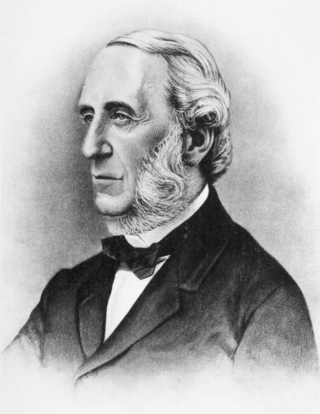
George Punchard was a New England editor and Congregational clergyman.
Thomas Treadwell Stone was an American Unitarian pastor, abolitionist, and Transcendentalist.
Andover Newton Seminary at Yale Divinity School is an American seminary program founded in 2017 within Yale Divinity School and located in New Haven, Connecticut. It is the successor institution of Andover Newton Theological School (ANTS), the oldest graduate seminary in the United States and the nation's first graduate institution of any kind.
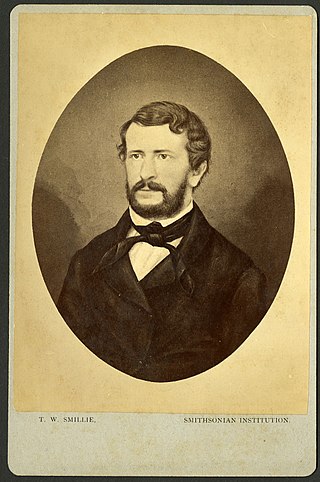
William Wadden Turner was an English-born American philologist and librarian.
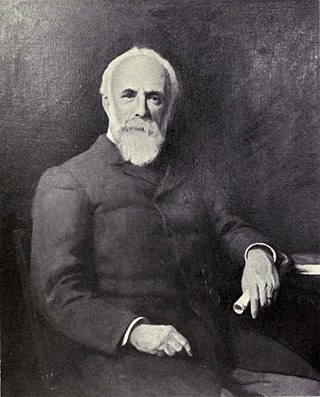
Cecil Franklin Patch Bancroft was an American educator and 8th Principal of Phillips Academy in Andover, Massachusetts, from 1873 to 1901.

Ebenezer Pemberton was an American educator and 2nd Principal of Phillips Academy Andover from 1786 to 1793. Refusing to follow his uncle's wishes to become a clergyman, Pemberton pursued a teaching career that would become his life's work. After graduating from Princeton University, he served terms as principal of a number of schools for early education including Plainfield Academy in Plainfield, Connecticut, Phillips Academy, and his own Pemberton Academy in Billerica, Massachusetts. He founded another school in 1810 in Boston, serving as principal there until poor health forced him to retire.

Edward A. Lawrence, Sr., A.M., D.D. was a 19th-century American Congregational pastor and author. He ministered to congregations in Haverhill, Massachusetts, Marblehead, Massachusetts, and Orford, New Hampshire. He was also a professor of Ecclesiastical History and Pastoral Duty at the Theological Institute of East Windsor, Connecticut, and wrote several publications, books, pamphlets, and essays.
References
- ↑ Thomas, Grace Powers (1898). Where to educate, 1898-1899. A guide to the best private schools, higher institutions of learning, etc., in the United States. Boston: Brown and Company. p. 39. Retrieved August 17, 2012.